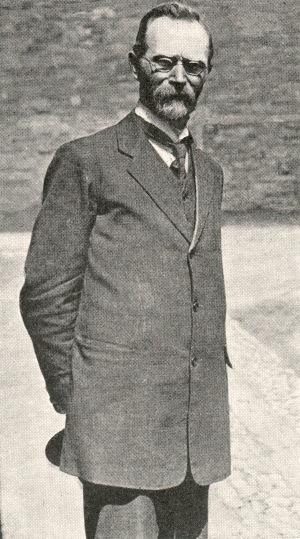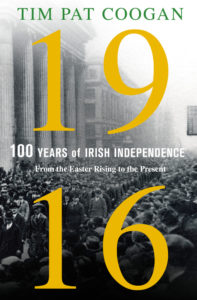WCAG Heading
by Tim Pat Coogan
‘MacNeill’ was Eoin MacNeill, the ostensible leader of the Irish Volunteers, a Gaelic scholar and professor at University College Dublin. Eoin MacNeill had envisaged the corps as having a purely defensive role. Coming into action only if the Conservatives and Ulster unionists combined to frustrate the will of a majority of the people in both islands that Home Rule should be introduced. Eoin MacNeill, however, had no idea that he was in fact being used as a figurehead. Plans for a revolution went on behind his back. There were other factors at work too.

Connolly’s very obvious drilling and marching of his tiny militia force was the reason the IRB leaders began to worry that he might bring the authorities down on them as part of a general swoop on agitation. Perhaps even snuff out whatever prospect the proposed rising might have had. Accordingly Connolly was detained and brought – somewhat forcibly – to a meeting with the IRB leadership. He was informed of their (still far from ripe) plans and agreed to throw in his lot with them. In effect, Connolly’s decision had the important political consequence that henceforth the aims of labour would become subsumed in the cause of nationalism.
WCAG Heading
The Irish Volunteers Leave for WWII
Thus Ireland resounded to the sound of marching feet in both unionist and nationalist boots. They drilled for different purposes between 1912 and 1914. The onset of war in the late summer of 1914, however, altered the flow of events. As war loomed, the vast majority of the Irish Volunteers left on the advice of John Redmond. Then renamed themselves the National Volunteers and join the British army.
Redmond had acted in the belief that generosity and co-operation on the part of the Irish in Britain’s hour of need would be reciprocated when the war ended. For Home Rule had now been passed at Westminster. Though its implementation was paused until the war with Germany was over. Redmond’s expectation, then, was that the British government would reciprocate in decency and generosity. Then finally implement Home Rule when the war was over.

It cannot be argued that Irish history was rich in examples of incidents which bore out this belief; Redmond, however, was influenced by his personal friendship. This included leading Liberals such as Augustine Birrell, who was the Irish Chief Secretary and a member of the cabinet.
Eoin MacNeill Refuses to Fight for Britain
A small minority of the Volunteers, led by Eoin MacNeill, refused the call to join Britain’s war effort. This radical rump, would be increasingly controlled by the IRB for its own rebellious purposes. As the Great War began to tear Europe apart, the IRB’s quiet preparations for an Irish uprising continued. Now a tentative date was mooted: that of Easter 1916. Emissaries were sent to Berlin to secure weapons and other practical assistance from the German government. These preparations were unknown to MacNeill – and when he discovered them, very late in the day, another split in volunteer ranks ensued; and MacNeill himself placed a notice in the Sunday Independent calling off all parades and volunteer activities scheduled for that fateful Easter weekend.
Meanwhile, IRB leaders were discovering that the scale of assistance to be expected from Berlin was far less than they had been led to believe. So much less, that the rebels’ representative in Germany, Roger Casement, made his way back to Ireland aboard a German submarine. This in an attempt to call off the now hopeless uprising before it ever began. Casement, however, having been put ashore on Banna Strand in Tralee Bay on 21 April 1916, was captured. The small shipment of arms which he had managed to secure was scuttled by its German commander after fruitlessly sailing up and down the Kerry coastline awaiting signals which never materialized.
TIM PAT COOGAN is Ireland’s best-known historical writer. His 1990 biography of Michael Collins rekindled widespread interest in the revolutionary era and he is also the author of The IRA, Long Fellow, Long Shadow, Wherever Green is Worn, and The Famine Plot.
